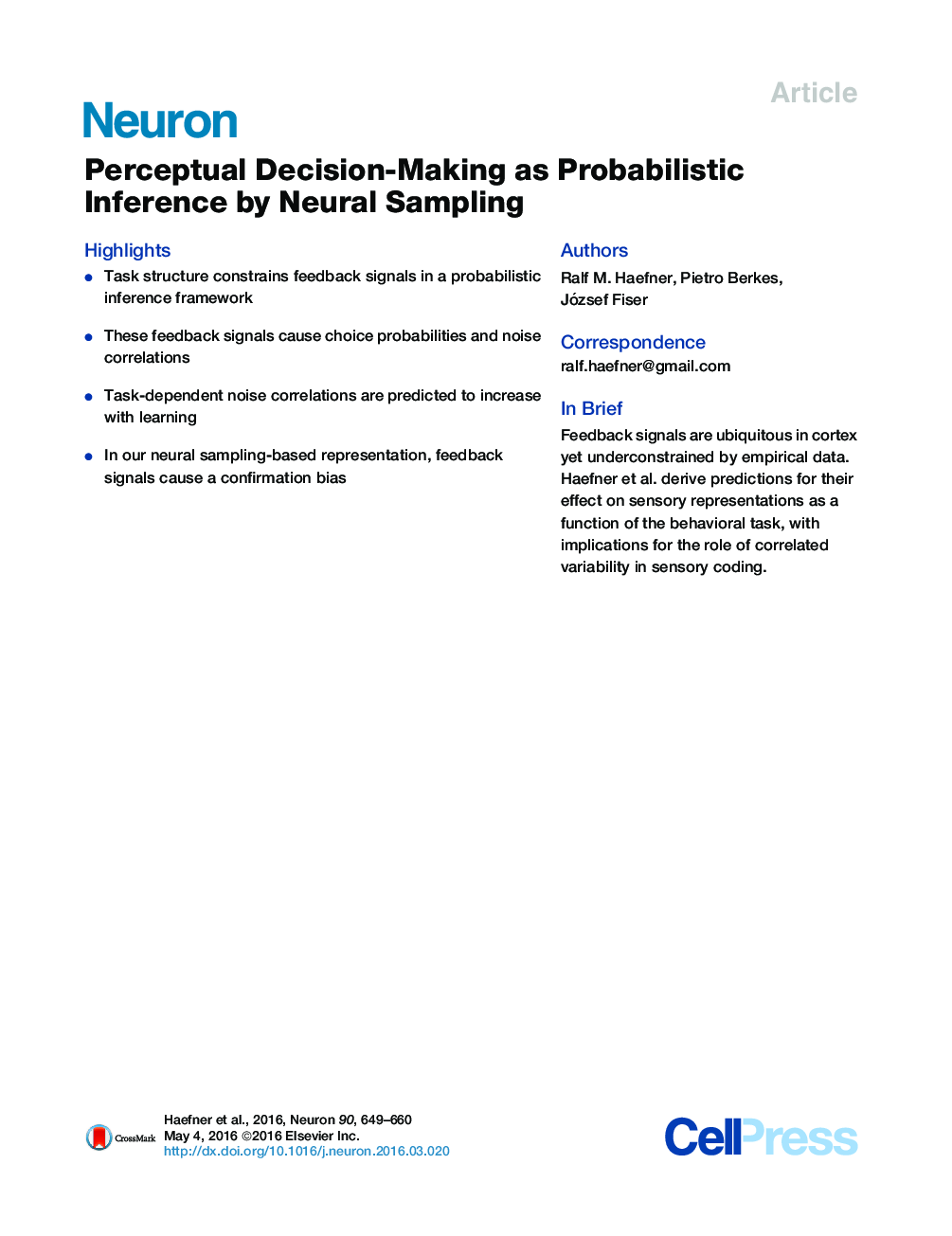| Article ID | Journal | Published Year | Pages | File Type |
|---|---|---|---|---|
| 4320715 | Neuron | 2016 | 12 Pages |
•Task structure constrains feedback signals in a probabilistic inference framework•These feedback signals cause choice probabilities and noise correlations•Task-dependent noise correlations are predicted to increase with learning•In our neural sampling-based representation, feedback signals cause a confirmation bias
SummaryWe address two main challenges facing systems neuroscience today: understanding the nature and function of cortical feedback between sensory areas and of correlated variability. Starting from the old idea of perception as probabilistic inference, we show how to use knowledge of the psychophysical task to make testable predictions for the influence of feedback signals on early sensory representations. Applying our framework to a two-alternative forced choice task paradigm, we can explain multiple empirical findings that have been hard to account for by the traditional feedforward model of sensory processing, including the task dependence of neural response correlations and the diverging time courses of choice probabilities and psychophysical kernels. Our model makes new predictions and characterizes a component of correlated variability that represents task-related information rather than performance-degrading noise. It demonstrates a normative way to integrate sensory and cognitive components into physiologically testable models of perceptual decision-making.
